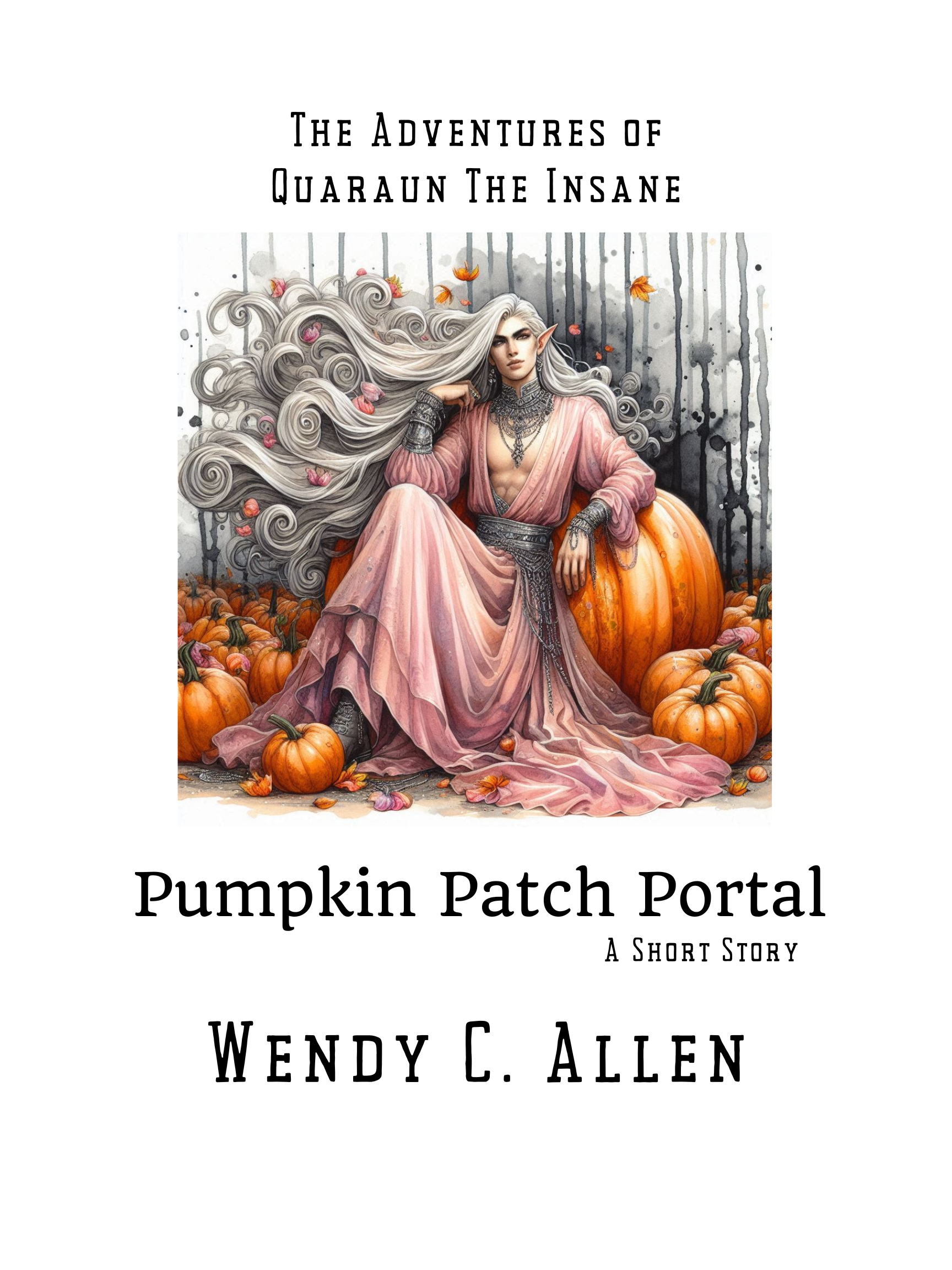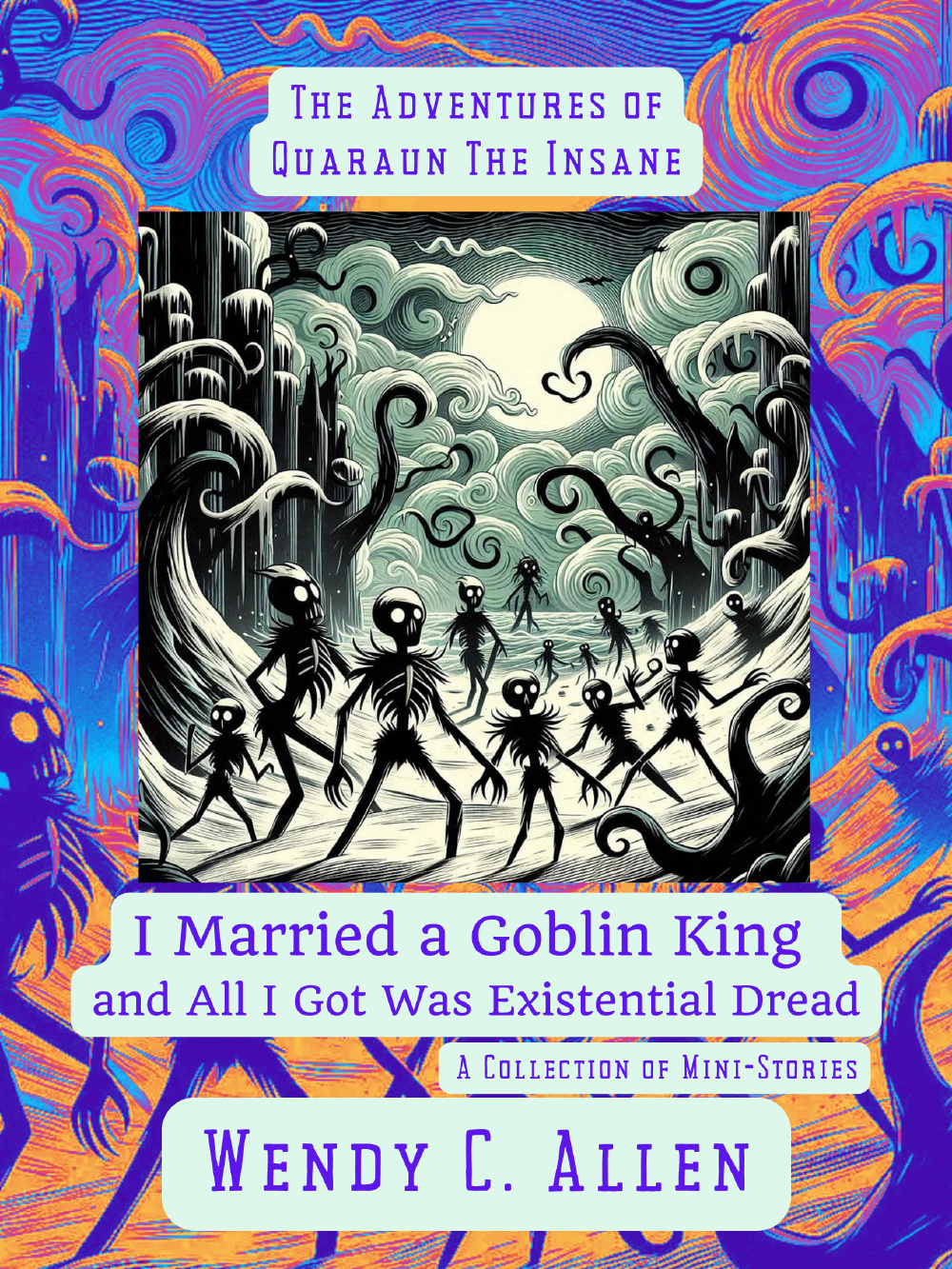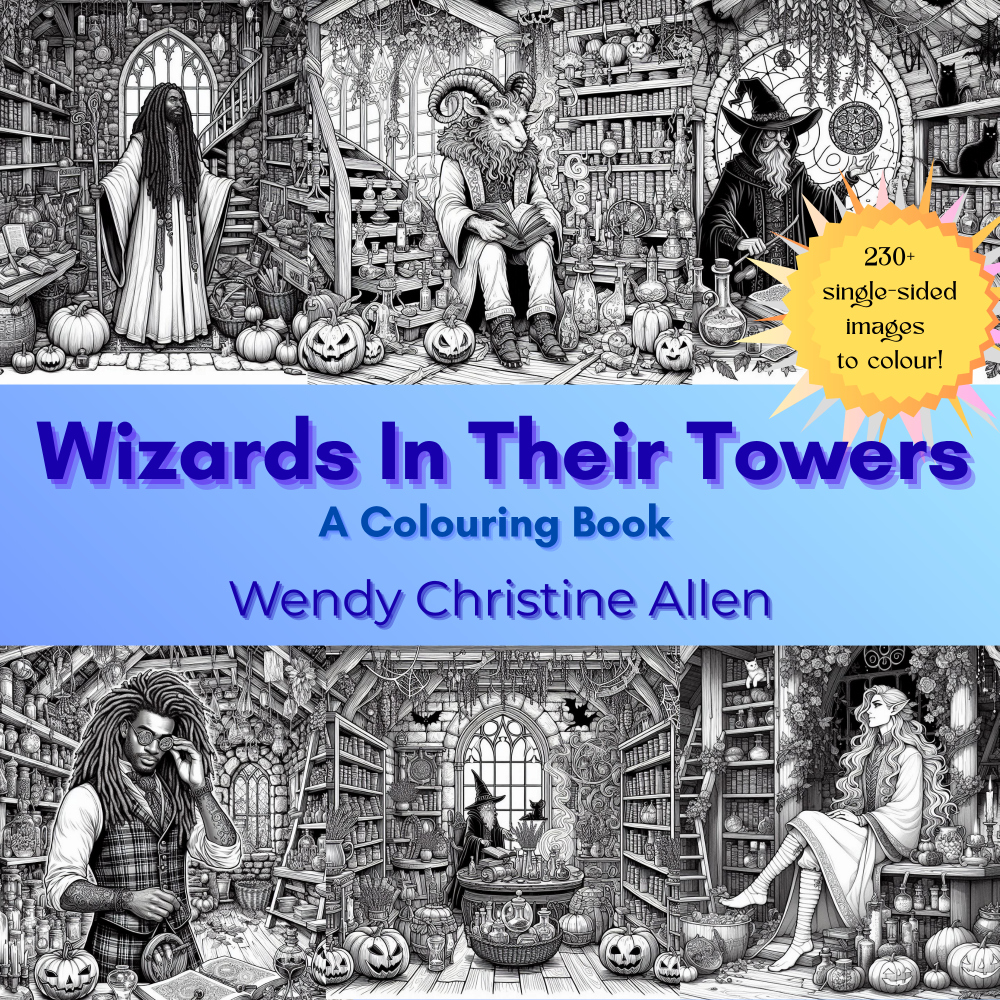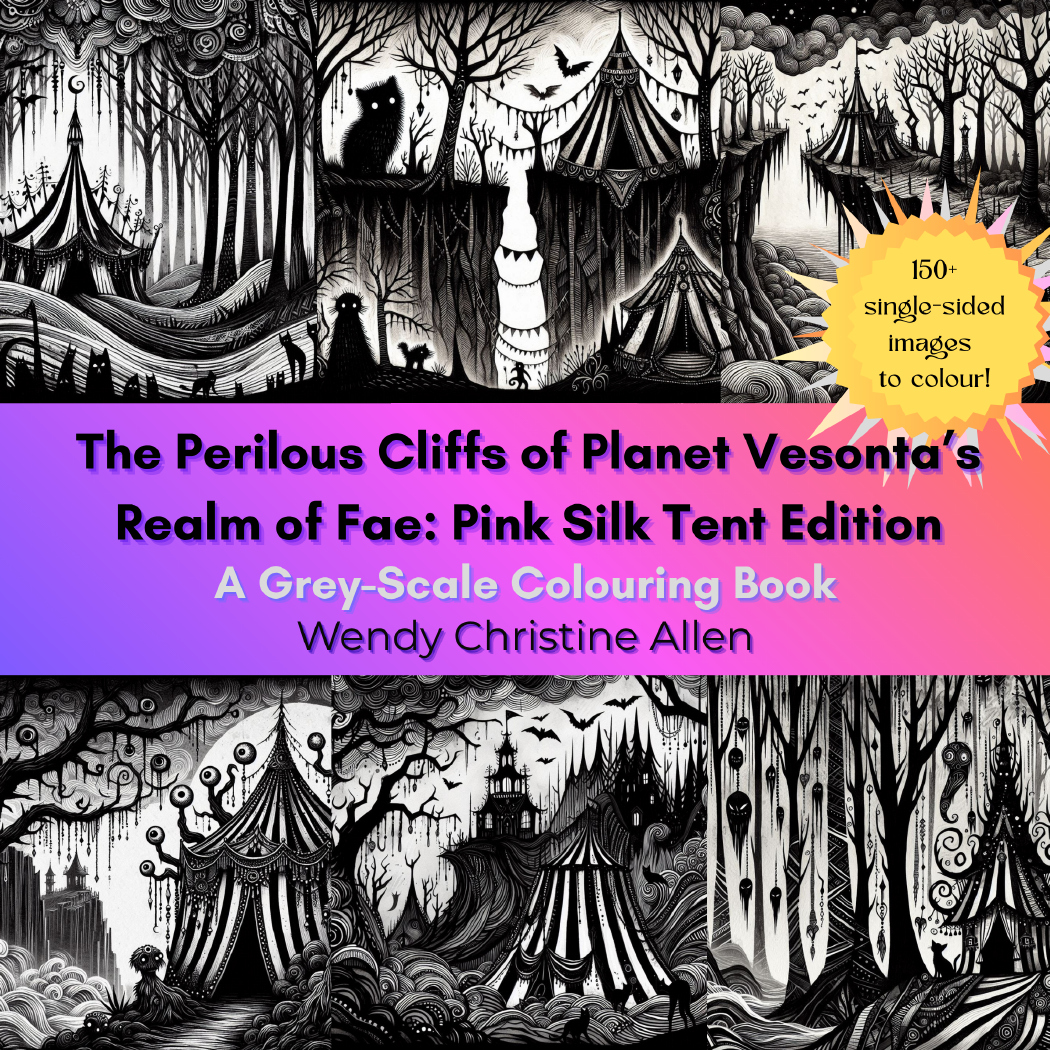Counting Down to the 2028 50th Anniversary of my first published book (September 23, 1978)
|
I am an author. I write Yaoi. This is my website. Yaoi means my main characters are gay lovers. If that bothers you, you're on the wrong website. Sorry.   Transman Quaraun (The Pink Necromancer) and his husband King Gwallmaic (aka BoomFuzzy the Unicorn) King of The UnSeelie Court. Main characters of The Adventures of The Pink Necromancer series. Transman Quaraun (The Pink Necromancer) and his husband King Gwallmaic (aka BoomFuzzy the Unicorn) King of The UnSeelie Court. Main characters of The Adventures of The Pink Necromancer series.
|
This website is a safe zone for LGBTQAI+, pagans, polys, trans, neurodivergent, disabled, mobile aid user, minority, cosplayers, otherkin, furries, & BIOPIC communities.
If you are a hater, you can go fuck yourself.
Happy 2026!
It is our 30th anniversary here at Space Dock 13!
On the web since 1996!
You have encountered an extremely old website that continues to exist in old web ways, the same way it has done for now three decades.
In spite of being now 30 years old this year, started in 1996, it is still heavily active and old pages updated daily, new pages added daily, still now in 2026. All hand written, all hand coded (no AI), all by me, same as it ever was.
We Still Exist: The Old Web Did Not Go Away, You Just Forgot How To Find Us
|
This site was NOT designed for mobile devices (as they had not been invented yet when I created it) thus this site looks best on a computer, at 1280x768 or above. |
This is a very old website created in 1996, so, yes, javascript is needed for the site to work as it should. If things don't function, you may need to update javascript drivers on your device |
This site tries to be mobile friendly but it's been online since 1996, so old pages may not load right on mobile devices, and as this site has had pages added near daily for 30 years there are now over 20k pages here. |
Having started out in life as a GeoCities site, this site contains glitter, bright colours, blinkies, moving gifs, and other things the old web was known for. |

I write my novels everyday and now it's already more than 100 pages yet it's not half of the story...
Should I plan for ending or just keep writing?
- EelKat Wendy C Allen: Old Orchard Beach's Autistic Author & Art Car Designer
- Just Write!
- Write something! Just do it!! Right now! Writing something! You can do it! You know you want to! I believe in you!
- Only one thing is writing...WRITING! So just start writing, right now, today.
- I write my novels everyday and now it's already more than 100 pages yet it's not half of the story. Should I plan for ending or just keep writing?
- EelKat Wendy C Allen: Old Orchard Beach's Autistic Author & Art Car Designer
- Just Write!
- Write something! Just do it!! Right now! Writing something! You can do it! You know you want to! I believe in you!
- Only one thing is writing...WRITING! So just start writing, right now, today.
- I write my novels everyday and now it's already more than 100 pages yet it's not half of the story. Should I plan for ending or just keep writing?
Should I plan for ending or just keep writing?
While my original answer to this question appeared on the thread linked above, my answer here on EelKat.com is longer and has more detail then the one posted on the original forum.
Should I plan for ending or just keep writing?
My Answer To The Person Who Answered This Question Incorrectly:
I was just on Quora and say this question (as Quora decided to display it as recommended) and the question was this:
"I write my novels everyday and now it's already more than 100 pages yet it's not half of the story. Should I plan for ending or just keep writing?"
But the top answer was this:
"Depending on your genre a novel will be anywhere from 70000 words to 120,000 words. A 100000 words is about 400 pages and 50000 words is 200 pages."
How do such incorrect answers get voted to the top?
Your numbers are waaaaay off;
50,000 words - printed as a book - comes to about 75 pages;
Most publishing houses consider 50k to be a short story;
75k to 120k to be a novella;
120k to 300k a novel
300k+ an epic novel
If you are looking to trade publish - print paperback with a large press publishing house - know that their printing press machines which make your book, typically require a book to be at minimum 282 pages aka 120,000 words; this has to do with the machines that print the books up.
The average publishing house will refuse to look at any manuscript under 120,000 words, because their printing machines are not able to print books with fewer then 282 pages.
If you are looking to trade publish - print paperback with a large press publishing house - know that their printing press machines which make your book, typically require a book to be at minimum 282 pages aka 120,000 words; this has to do with the machines that print the books up.
The average publishing house will refuse to look at any manuscript under 120,000 words, because their printing machines are not able to print books with fewer than 282 pages. This criterion stems from the technicalities of book production, where the physical process of binding and printing requires a certain thickness to ensure the structural integrity of the final product.
While this may seem like a formidable constraint for writers who specialize in shorter works or novellas, it's worth considering how this requirement can shape your creative journey. As a storyteller, the challenge lies in crafting a narrative that not only meets the publishing industry's standards but also fulfills your artistic vision. This constraint can push you to delve deeper into your characters, explore subplots, and weave intricate layers into your storytelling canvas.
Embracing this limitation also prompts a closer examination of pacing and structure. By extending your narrative to meet the minimum word count, you're provided with an opportunity to create a more immersive reading experience. Delicate scenes can unfold at a leisurely pace, character development can blossom organically, and the world you've meticulously built can be further enriched.
However, it's important to remember that while the printing press's requirements may shape the industry's standards, the heart of your story remains at the core. As a writer, your creative expression should never be solely dictated by technicalities. Whether your narrative naturally falls within the scope of this requirement or needs adaptation, what truly matters is the authenticity and resonance your words evoke.
In the end, while the 120,000-word threshold may seem like a fixed hurdle, it's essential to approach it as an opportunity for exploration and growth. The canvas you have at hand is spacious, inviting you to paint with words that capture hearts and minds. So, as you embark on this writing journey, let the constraint inspire you, guide you, and above all, empower you to craft stories that leave an indelible mark on the literary world.
The numbers you cite, appear to be referencing, page count vs word count of the standard manuscript printed in 12pt font on 8x11 sheets of copy paper.
Please keep in mind that the standard printed novel has pages 4x6, with print space of 3x5, and a font size of 10pt.
Many people, whom have never worked in the publishing industry, are quick to hash out inaccurate answers on sites like Reddit and Quora, because they are simply seeking views and followers. This becomes a problem, because often, they, like this person here, answer the question by re-hashing an answer they read someone else say. And so now, not only was the first person who answered wrong, but now so too is every one else who answered and simply rehashed the first answer, falsely assuming that the first answer must have been correct.
Many people, who have never worked in the publishing industry, are quick to hash out inaccurate answers on sites like Reddit and Quora, because they are simply seeking views and followers. This becomes a problem, because often, they, like this person here, answer the question by rehashing an answer they read someone else say. And so now, not only was the first person who answered wrong, but now so too is everyone else who answered and simply rehashed the first answer, falsely assuming that the first answer must have been correct.
In a world driven by instant gratification and rapid information exchange, it's crucial to discern between well-researched responses and mere regurgitation of opinions. The publishing industry, with its intricate nuances and multifaceted processes, is no exception to this phenomenon. Aspiring writers, seeking guidance and clarity, often find themselves at the crossroads of misinformation propagated by well-intentioned individuals who lack firsthand experience.
This cascading effect of misinformed responses can inadvertently misguide those in pursuit of accurate knowledge. What starts as a genuine quest for insight can devolve into a maze of confusion due to the proliferation of unverified opinions. It underscores the importance of critical thinking and discernment when sifting through the plethora of information available online.
To navigate these treacherous waters, aspiring authors are encouraged to seek reliable sources of information, consult industry professionals, and approach advice with a healthy dose of skepticism. While online communities can be valuable platforms for sharing insights and experiences, it's essential to approach them with a discerning eye, separating informed responses from mere echoes of hearsay.
In an era where information is at our fingertips, the responsibility to discern truth from misinformation falls on both the content consumer and creator. By promoting a culture of verified knowledge and informed exchange, we can collectively steer aspiring writers toward accurate information, empowering them to make well-informed decisions on their creative journeys. So, let's challenge ourselves to be diligent, to question assumptions, and to champion accurate information in the pursuit of excellence.
No. I'm sorry, but none of the answers on the Quora question linked above are correct.
Also, none of them answered the question asked either.
The first one answered by citing page count vs word count (incorrectly) and then each person after that did the same thing, using the exact same incorrect numbers the first person had used.
Ironically, the person DID NOT ask how many words or how many pages, their novel should be. They didn't ask that at all.
What did they ask?
"I write my novels everyday and now it's already more than 100 pages yet it's not half of the story. Should I plan for ending or just keep writing?"
THAT was the question.
It was the statement:
"I write my novels everyday and now it's already more than 100 pages yet it's not half of the story."
Followed by the question:
"Should I plan for ending or just keep writing?"
In looking at the answers, I have to now ask this:
Has the world reached a point that attention spans are so short, you can't even read two sentences?
Everyone who answered this, made the attempt to answer the statement which explained the situation, but not one of them, moves on to actually answering the actual question which came after the statement!
The question was:
"Should I keep writing?"
And no one answered that at all.
This situation highlights a growing challenge in online communities, where the immediacy of responses sometimes eclipses the careful consideration of the question being asked. In an age where information is exchanged rapidly, there's a tendency to jump to conclusions based on partial information. This underscores the importance of not only reading the full context but also taking the time to absorb and address the essence of the query.
As writers, it's crucial for us to remember that a well-crafted response goes beyond acknowledging the surface-level inquiry; it delves into the heart of the matter and provides valuable guidance. Just as in storytelling, the nuances of a character's journey are explored to understand their motivations and choices, responding to queries should reflect a similar depth of engagement.
So, as we navigate the realm of online discourse, let's be mindful of our responses, take the time to truly understand the questions being posed, and strive to provide meaningful insights that address the heart of the matter. In doing so, we foster a culture of genuine exchange that elevates the collective understanding and enriches our interactions.
My Answer To The Question Itself:
Well, now, since no one else answered the question, let's do that, shall we?
The question:
"I write my novels everyday and now it's already more than 100 pages yet it's not half of the story. Should I plan for ending or just keep writing?"
There are some things to consider here, and page count is not one of them.
The most important thing to consider is the fact that you are writing a first draft. If you plan to publish it, you will later edit it.
Then you will revise it, which is different then editing.
Then you will rewrite it, which is different then revising.
Once you have done that, you'll edit it again. Then you'll revise it again. Then you'll rewrite it again.
The average published novel goes through 7 edits. That means, also 7 revisions and 7 rewrites. Meaning you'll go back into your novel and re-do it a grand total of 21 times, before it'll be polished enough to send to a professional editor for actual editing.
Sounds like a lot of work? It is. But it's what you have to do if you want to be published.
It is not uncommon for a first draft to be as many as 500 pages, keeping in mind that 11x8 draft pages, translate into 1,000 printed pages.
During the editing and revision process, a typical writer can plan to cut 300 or more pages of their draft.
And so with this in mind, we return to your question:
"I write my novels everyday and now it's already more than 100 pages yet it's not half of the story. Should I plan for ending or just keep writing?"
The answer is, when writing your first draft, do not worry about word counts of page counts. They are trivial items that mean nothing to you as an author. It is the publisher who has to worry about them, not he author.
Your job as an author is to write the story.
Get the story out on paper.
Just write.
Write. Write. Write. Write.
Who cares about word count?
No one.
Who cares about page count?
No one.
No one cares about those things at this stage. You are months away from those things being important.
Right now what is important, is getting the ENTIRE story, beginning to end, out of your head and onto the page.
No one vomits gold bricks on the page. You WILL remove more then half of what you wrote during the editing stage.
Do you know what that means?
It means if you stop right now with only 100 pages written (and 100 pages is only a novella, it's not a novel) and then you cut half of it out in editing, you'll have a finished product of only 50 pages, which is a short story.
To be a novel, it needs to reach 282 printed pages AFTER you cut it in half during the editing and revision process.
Meaning at this stage, you should be planning to write a 500 page first draft.
I know, new writers look at that and say: "But I can't cut out half of my story!"
You won't be cutting out half of your story.
In most cases, the cuts do not effect the story at all. In most cases, the cuts are removing super long wordy sentences and replacing them with short, clean, easy to read sentences.
You see things in first drafts like:
"He ran and ran and ran and ran and ran and just didn't stop running until he got all the way to the top." (24 words)
In the finished novel however, you would instead see this:
"He ran all the way to the top without stopping." (10 words)
The story was not changed by rewording the sentence and cutting it from 24 words to just 10 words.
When you edit and revise your story you will go back and look at long wordy sentences and rewrite them shorter. But right now while you are writing the first draft, that part doesn't matter. What matters now is just getting the story out there.
Once you have the entire story out of your head and on page, then you can go back into it and play around with rearranging words and making it easier to read. But that comes later, after you've written it out first.
Just keep writing.
Continue to pen your thoughts.
Stay in the flow of your narrative.
Maintain your creative momentum.
Press on with your writing journey.
Let the words keep flowing from your mind.
Persist in the act of storytelling.
Don't pause, keep your narrative unfolding.
Carry on weaving your literary tapestry.
Keep the ink flowing on your pages.
Stay committed to the act of writing.
Write to the end.
Despite the challenges, self-doubt, and distractions, remember, the key to success is to just keep writing.
As you face the blank page, remind yourself that the best way to overcome writer's block is to just keep writing.
When the doubts creep in, tell yourself to silence the inner critic and just keep writing.
The path to honing your craft is paved with dedication, so even on tough days, remind yourself to just keep writing.
In the midst of revisions and edits, stay focused on the end goal and keep reminding yourself to just keep writing.
Whether it's a moment of inspiration or a challenging phase, remember that the only way to make progress is to just keep writing.
Don't let setbacks deter you; pick up your pen and just keep writing with unwavering determination.
Some days may feel like a struggle, but the secret to improvement is to just keep writing and evolving.
Embrace the process, learn from every sentence, and always remind yourself to just keep writing.
Your voice as a writer is unique; channel it, embrace it, and most importantly, just keep writing to share your story with the world.
Write it as long as it needs to be to tell the complete and entire story.
DO NOT, change your story just to write fewer words.
Just write your story.
This article was originally written on: June 26, 2017
This page last updated on: June 26, 2017











